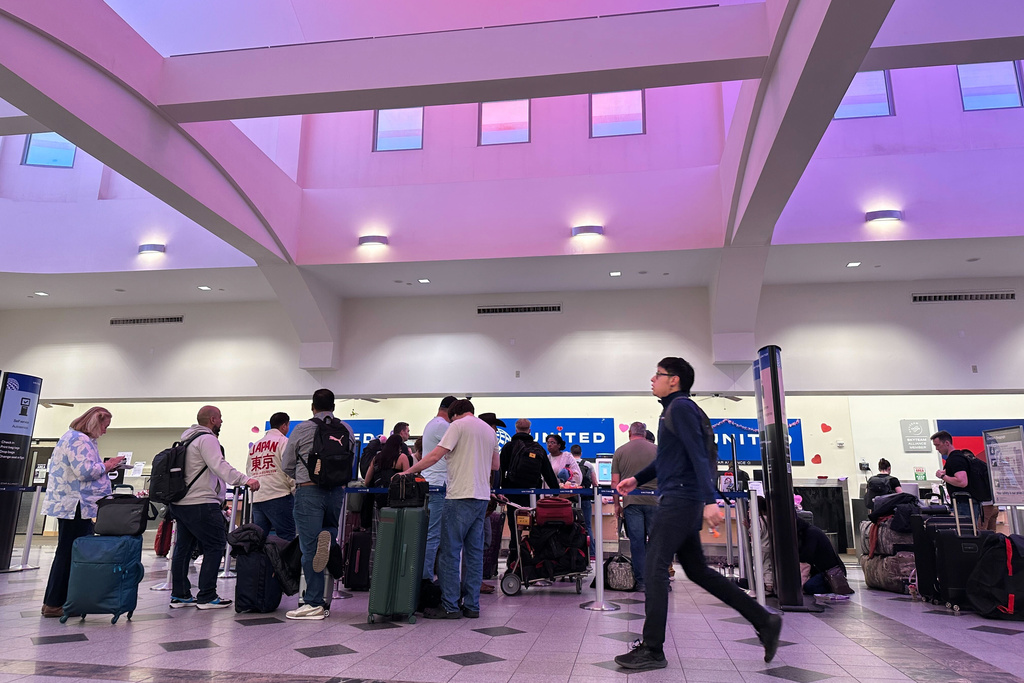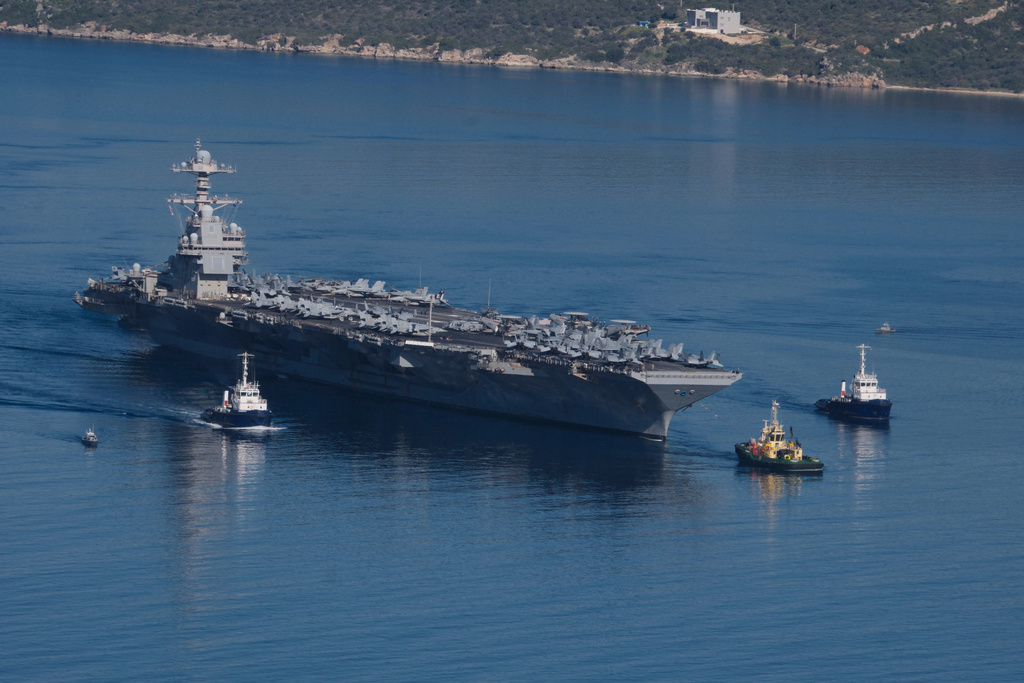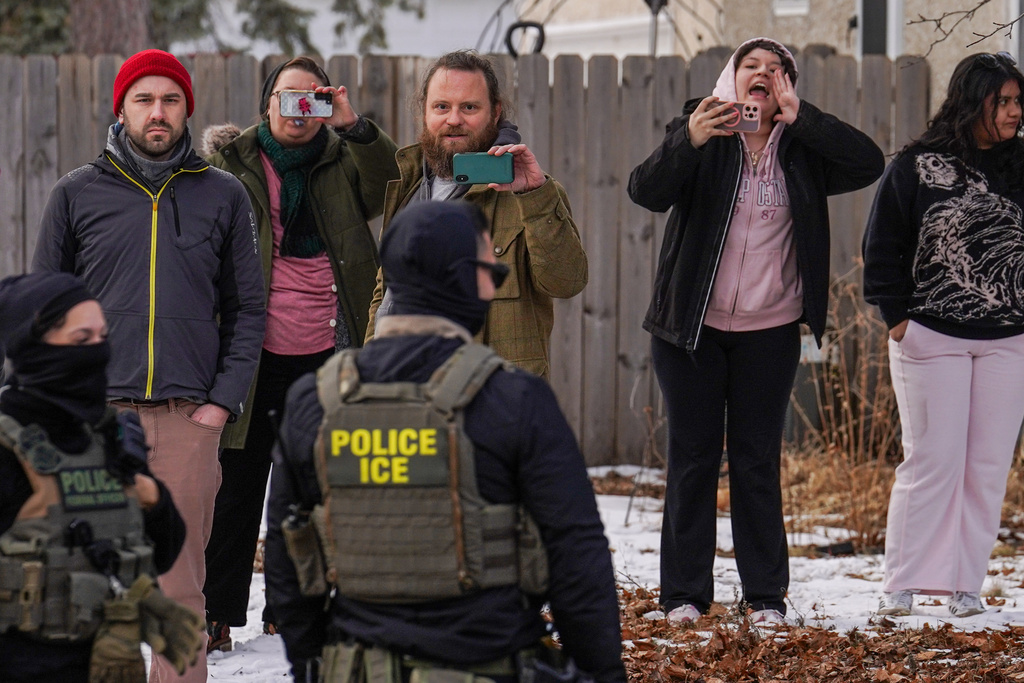It is a place of escape, not just from the danger of near-daily death and destruction from Russian attacks, but also from the despair of nearly a year of war.
Here in the southern Ukrainian city of Mykolaiv, the show goes on — even if not in the 450-seat neo-classical performance hall above, where it’s too dangerous for large crowds to gather.
"Creative life does not stop," says Artem Svystun.
He’s the director of the Mykolaiv Art Drama Theater. Before last February, Svystun says, "the official name of the theater was 'Russian Academic Drama Theater.' After the full-scale Russian invasion, we deleted the word 'Russian.'"
And at one point, Russia came close to deleting the theater.
A theater clock stopped ticking, just after midnight last September 22, when a Russian missile landed in the theater’s courtyard. Shrapnel from the missile is still lodged in a tree. An exterior wall took the brunt of the explosion, but, as Svystun shows us, the attack also caused massive damage inside.
Theater staff cleaned up and got back to work for eager audiences, still undeterred.
Because even if the venue may be different for the moment, that audience remains. While most of the prewar population of half a million fled the relentless shelling, an estimated 200,000 people remain in Mykolaiv.

NATO warns of Russia's long war in Ukraine, vows to be ready
NATO chiefs are expected to discuss how allies can expand the delivery of weapons, training and support to Ukraine in the coming months.











